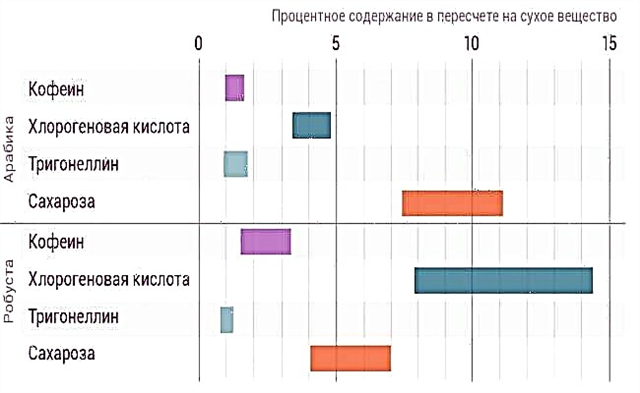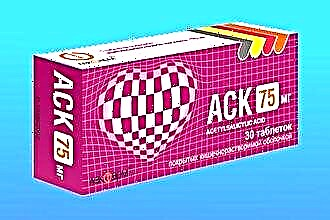Inflammation of the mucous membrane of the paranasal sinuses of an infectious origin occurs quite often among ENT pathology. In addition to microbes, the cause of sinusitis can also be an allergic factor or chronic rhinitis. How to treat sinusitis, and what drugs will help you quickly cope with the disease? To achieve the maximum therapeutic result, it is recommended to carry out complex treatment with the use of intranasal agents and systemic drugs.
Features of the disease
 The mechanism of development of sinusitis is as follows. Swelling of the mucous membrane of the nasal passages makes it difficult to ventilate in the paranasal sinuses, and also disrupts the outflow of secretions. Due to insufficient air circulation in the cavities, conditionally pathogenic flora is activated. The accumulation of mucous secretions becomes a good breeding ground for microbes, as a result of which they multiply intensively and cause inflammation of the mucous membrane.
The mechanism of development of sinusitis is as follows. Swelling of the mucous membrane of the nasal passages makes it difficult to ventilate in the paranasal sinuses, and also disrupts the outflow of secretions. Due to insufficient air circulation in the cavities, conditionally pathogenic flora is activated. The accumulation of mucous secretions becomes a good breeding ground for microbes, as a result of which they multiply intensively and cause inflammation of the mucous membrane.
Failure to take sinusitis medication increases your risk of serious complications, such as:
- meningitis;
- osteomyelitis;
- brain abscess;
- optic neuritis;
- thrombosis.
For the correct diagnosis, instrumental methods are used:
- rhinoscopy;
- ultrasound examination of the sinuses;
- radiography;
- tomography.
Causes
Most often, the maxillary sinuses are affected, less often the wedge-shaped. In more than 50% of cases, after bacteriological examination, pneumococcus is detected, as well as Pfeifer's bacillus.
Predisposing factors include:
- congenital anomalies of the structure of the nasopharynx;
- traumatic injury to the nasal cavities;
- hypertrophic rhinitis;
- medical manipulations (nasal tamponade, insertion of a nasogastric tube);
- polyposis;
- smoking;
- poorly performed dental interventions in the oral cavity, after which the infection and the inflammatory process spreads to the maxillary sinuses;
- frequent hypothermia;
- immunodeficiency due to severe somatic pathology;
- a fungal infection that occurs as a result of long-term use of antibacterial drugs in high doses.
A change in the composition of the microflora in the nasopharynx against the background of antibiotic therapy leads to a decrease in local immunity, which is fraught with mycotic complications.
The acute form of sinusitis can last up to 8 weeks, after which there is a recovery or chronicity of the process.
Symptoms
The severity of clinical signs depends on the form of the disease, its cause and the presence of complications. With sinusitis in adults, local, general symptoms appear. Among the manifestations of a systemic nature, it is worth highlighting:
- malaise, rapid fatigability;
- hyperthermia. In a chronic course, hyperthermia usually does not exceed 37.3 degrees. In the acute form, fever can reach 39 degrees;
- decreased appetite;
- headache;
- insomnia.
Local signs include:
- nasal congestion;
- rhinorrhea of a mucous nature, which gradually turns into the stage of thick snot;
- soreness in the paranasal cavities;
- deterioration of smell;
- Difficulty nasal breathing.
Therapeutic tactics
Sinusitis in adults can be treated conservatively, but if indicated, puncture of the paranasal cavities, excision of polyps, or partial excision of the sinuses can be performed. This is necessary to remove purulent accumulations and sanitize the infectious focus.
Medications for the treatment of sinusitis in adults:
- antibacterial agents (Amoxiclav, Cefuroxime) - are prescribed for the bacterial origin of the disease;
- antiviral, immunomodulatory (Tsitovir, Viferon) - used to increase the body's immune forces to combat pathogens;
- antihistamines (Erius, Claritin) - used for allergic forms;
- anti-inflammatory (Nimesil). The tool not only reduces the severity of the inflammatory process, but normalizes the temperature and has an analgesic effect;
- mucolytic - Sinupret. Also has anti-inflammatory, anti-edema properties.

Local remedies for sinusitis are:
- vasoconstrictor drugs (Otrivin, Nazol);
- combined drugs (ointment, Vibrocil drops have a vasoconstrictor, antihistamine effect);
- antihistamines (Tizin Alerji) - for allergic rhinitis;
- antibacterial (Isofra, Bioparox);
- mucolytic (Rinofluimucil).
Chronic sinus inflammation can be eliminated by combining drug therapy with physiotherapy. Diadynamic currents, UHF, ultraphonophoresis, heating with a blue lamp and sollux are considered effective.
Now let's take a closer look at drugs for sinusitis.
Vasoconstrictor medicines
Vasoconstrictor drugs during pregnancy are rarely prescribed due to the high risk of vasospasm of the placenta and fetal hypoxia.
Preparations for sinusitis with a vasoconstrictor effect are prescribed to reduce swelling of the nasal mucosa, restore drainage from the sinuses and facilitate breathing.
This group of medicines includes Meralis, Xymelin, Nazivin, Knoxprey. They work for 6-12 hours, so they do not require frequent nasal instillation.
Many vasoconstrictor drugs for treatment are limited in use due to the presence of a large number of contraindications.  Contraindications include:
Contraindications include:
- pheochromocytoma;
- disruption of the heart;
- hypersensitivity;
- uncontrolled epilepsy;
- hypertonic disease;
- thyrotoxicosis;
- renal insufficiency;
- enlarged prostate;
- taking antidepressants.
Mucolytics
The main action of the funds in this group is to eliminate tissue edema and reduce the viscosity of the secretion. As a result, drainage from the paranasal sinuses is restored, and mucus does not accumulate.
The medicine for sinusitis Rinofluimucil has a healing property thanks to acetylcysteine, tuaminoheptane sulfate, which are included in its composition. The drug is available in the form of a spray, the solution has a mint aroma.
Contraindications
The remedy is contraindicated for:
- individual intolerance to the constituent components;
- severe hypertension;
- pheochromocytoma;
- glaucoma;
- breastfeeding;
- simultaneous use with vasoconstrictor drugs, as well as antidepressants.
Caution in treatment should be observed in patients with severe atherosclerotic vascular disease, diabetes, increased production of thyroid hormones, asthma and prostatic hypertrophy.
The spray is recommended to be used in two doses three times a day. The duration of the course should not exceed a week.
One dose corresponds to the volume of solution that is released with one press on the nebulizer.
Overdose and adverse reactions
The instruction focuses on the following side reactions that may occur if the medication is misused for sinusitis:
 allergies;
allergies;- anxiety;
- hallucinations;
- irritability;
- headache;
- insomnia;
- tremors;
- a feeling of palpitations;
- violation of the cardiac rhythm;
- increased blood pressure;
- increased nasal congestion;
- dryness of the mucous membrane in the nasal passages;
- nausea;
- skin rash;
- addictive;
- delayed urination.
Local antibiotics
Antibacterial sinusitis medications can help clear up the infection and speed up recovery. One of these drugs is Isofra, which contains framycetin. It comes in the form of a spray, which limits its use in infancy.
The use of a spray in a child under six years of age is fraught with the development of otitis media. It is caused by the high rice penetration of the medicinal solution through the short Eustachian tube into the ear cavity.
According to the instructions, the drug is contraindicated:
- with individual intolerance to antibacterial agents of the aminoglycoside group;
- up to one year of age;
- during pregnancy due to the high risk of damage to the cochleovestibular apparatus in the embryo;
- in the lactation period, since aminoglycosides pass into breast milk.
Isofra is prescribed in one dose up to six times a day. For children, it is recommended not to exceed the frequency of injections of more than three per day. The bottle should be held upright. The first sprays must be made into the air so that subsequent doses have the exact volume of the medicinal solution.
The duration of the course does not exceed 10 days. No cases of overdose were found. Among the adverse reactions, it is worth highlighting only the low risk of developing allergies.
Systemic antibiotics
Amoxiclav tablets are antibacterial drugs, the composition of which is represented by amoxicillin and clavulonic acid. The widespread use of this medication is due to the good penetration of active ingredients into the secret of the paranasal sinuses.
The drug also passes into breast milk.
Before taking the tablets, dissolve in 100 ml water or chew before swallowing. A child weighing more than 40 kilograms is prescribed 1 tablet (375 mg) three times a day. If indicated, the dose may be increased.
Amoxiclav 2X is used for severe infections. Adults are prescribed 1000 mg (1 tablet) twice.
Children can be prescribed not only tablets, but a suspension. To prepare it, it is enough to add water to the bottle with the powder (up to the circular mark) and shake well.
Amoxiclav (tablets, suspension) can cause:
- dyspeptic disorders (nausea, diarrhea, vomiting);
- swelling of tissues, urticaria, skin rash;
- anxiety, headache, dizziness, insomnia, convulsions;
- pancytopenia (a decrease in the number of cells in the blood);
- hematuria (the appearance of blood in the urine).
Amoxiclav should not be taken for diseases of the hepatobiliary system (hepatitis).
During pregnancy, appointments must be agreed with the doctor. According to indications, an antibacterial agent can be used, since there is no mutogenic effect on the embryo.
Anti-inflammatory drugs
 Medicines, which are part of the group of non-steroidal anti-inflammatory drugs, have antipyretic, anti-inflammatory, analgesic effects.
Medicines, which are part of the group of non-steroidal anti-inflammatory drugs, have antipyretic, anti-inflammatory, analgesic effects.
The active ingredient nimesulide is part of many drugs (Nise, Nimesil). They are superior to Diclofenac and Ibuprofen in terms of their therapeutic effect.
Nimesil is available in powder form for suspension preparation. The sachet contains 2 g.
The medicine is contraindicated:
- with increased sensitivity to medicines of the group of non-steroidal anti-inflammatory drugs, which is manifested by bronchospasm, urticaria;
- while taking hepatotoxic drugs;
- in the early postoperative period after coronary artery bypass grafting;
- with exacerbation of Crohn's disease, intestinal ulcer, stomach;
- up to 12 years old;
- with severe hypocoagulation (pathology of the coagulation system).
Natural medicines
Herbal preparations for the treatment of sinusitis have no less pronounced therapeutic effect in comparison with synthetic drugs. Sinupret has a combined composition, has anti-inflammatory, antiviral, immunostimulating, mucolytic properties. In addition, it restores the protective functions of the nasal mucosa and increases resistance to irritants.
The drug contains sorrel, gentian rhizome, verbena, as well as elderflower, primrose flowers. The solution contains ethyl alcohol.
Due to the regular intake of the drug, the severity of the inflammatory process decreases, the secret is diluted and its excretion is facilitated. There are two types of Sinupret: pills, and also drops for internal administration.
Contraindications
The drug has a mild effect on the mucous membrane, is not addictive and has minimal side effects.
Among the contraindications, attention should be focused on hypersensitivity to plant components, as well as traumatic brain damage, epilepsy and liver failure.
Dragee is contraindicated for a child under six years of age, and drops - up to two years old.
If it is necessary to prescribe Sinupret to pregnant women, preference should be given to dragees, since alcohol is present in the solution.
Dosage and adverse reactions
Dragee should be taken whole with a small amount of water. Adults are recommended to take 50 drops (2 pills) three times a day, children - 15-25 drops (2 pills) three times.
Shake the bottle before using the solution.
Sinupret can cause:
- nausea;
- soreness in the stomach area;
- an allergic reaction, which is manifested by tissue edema, skin rashes, itching, shortness of breath, bronchospasm.
If the recommended doses are exceeded, ethanol poisoning is possible.
If the solution becomes cloudy, you should not stop taking it, since for herbal medicines this is considered a variant of the norm.
After opening the bottle, the solution retains its medicinal properties for six months.
Sinusitis treatment is a difficult task, which is quite difficult to cope with on your own. The main thing is to start treatment quickly when the first symptoms of the disease appear.

 allergies;
allergies;

